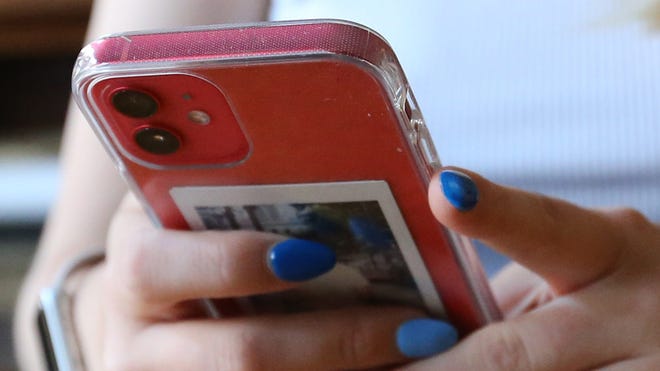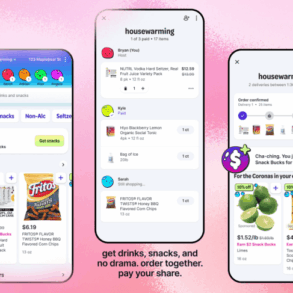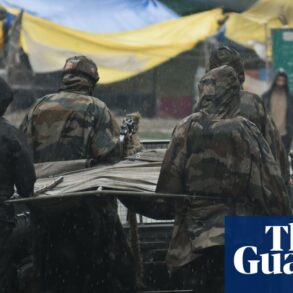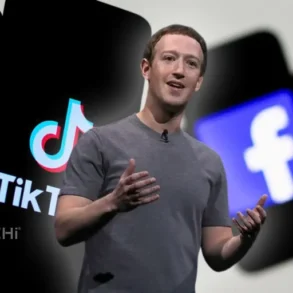It is no understatement to say that social media has dramatically altered the news landscape, often degrading civic discourse into a battleground of misinformation.
Young people, who spend much of their lives online, are thrown into this complex world without the necessary tools to navigate the falsehoods and conspiracy theories that crowd out the facts.
Today, adults under 30 are nearly as likely to trust information from social media as from national news outlets, according to the Pew Research Center.
As I look forward to athletes from around the world converging in my hometown of Los Angeles for the 2028 Olympics, I wonder whether dodging online rumors and falsehoods should be added to the competitive games. Like landing a perfect score on the balance beam or setting track and field records, learning to recognize misinformation and find credible sources takes training, skills and practice.
Data on teens and news literacy is alarming. Social media isn’t helping.

I am a philanthropist who dedicates significant investment toward improving public K-12 education, but I initially missed just how critical social media and news literacy are to the development of our youth. While I focused on traditional education fundamentals like math and English language skills, social media use among children as young as elementary school age skyrocketed.
Need a break? Play the USA TODAY Daily Crossword Puzzle.
This has diminished young people’s ability to parse information. A 2024 study by the News Literacy Project, a nonpartisan nonprofit organization that helps educators bring news literacy into the classroom, revealed that 82% of teens struggle to distinguish what’s news, advertisements, opinions and entertainment.
We know social media is polluted with conspiracy theories ‒ such as 5G technology spreading COVID-19 to vaccines being fitted with microchips that allow government surveillance.
Opinion:I’m a polio survivor. Kennedy’s vaccine stance means he shouldn’t be in charge of health.
America’s teens encounter such harmful lies daily. The News Literacy Project’s study shows that 8 in 10 teens on social media say they see posts that promote conspiracy theories, and an overwhelming majority who report seeing this content (81%) say they are inclined to believe one or more.
Alarmingly, the report also found that nearly half of teens surveyed think that journalists do more harm than good to democracy.
Require schools to teach media literacy
These results serve as a stark wake-up call. But they also show us a path forward.
An overwhelming majority of teens – 94% – say schools should be required to teach media literacy. And students with some form of media literacy lessons are more likely to fact-check before posting to social media, push back against misinformation when they see it and seek out reliable news.
Opinion:TikTok changed our culture – and my life. Would we be better off without it?
Guaranteeing news literacy education – the ability to fact-check and find credible sources through a variety of standards-based resources – is critical to ensure that our nation’s next generation of leaders has the power to discern fact from fiction.
Philanthropists have the unique opportunity to unlock this potential. By investing in news literacy, we can empower the next generation not only to participate in civic life but also to lead it with integrity and insight.
This is a bipartisan opportunity for donors and government to create meaningful public/private partnerships. Florida, Texas, Illinois and California are among the states that have signed legislation to bring news literacy to classrooms. Even more states – blue and red alike – are considering similar measures.

It is my hope that by the time the world gathers in Los Angeles for the 2028 Olympics, all 50 states will pass legislation recognizing the importance of news literacy. We need an Olympic-size commitment to teaching media literacy in our classrooms across America.
That would set a gold standard for the rest of the world. More important, it would put young people, our future leaders, on a podium above the lies and mudslinging that drag down our public discourse.
Melanie Lundquist is a member of the Giving Pledge. She is a proud graduate of Los Angeles Unified public schools and serves as a board member of the News Literacy Project, a nonpartisan nonprofit.
This post was originally published on this site be sure to check out more of their content






